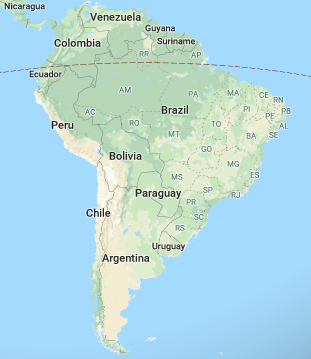- January 11, 2019
- www.khlaw.com
Food Packaging Regulations in Latin America | Update - Keller Heckman

MERCOSUR, the largest trading bloc in South America, was established by the Treaty of Asuncion del Paraguay on March 26, 1991 to promote free trade among member countries. The countries of MERCOSUR comprise the fifth largest economy in the world and the combined population of its member countries exceeds 295 million. MERCOSUR’s full members are Brazil, Argentina, Paraguay, and Uruguay. Venezuela became a formal MERCOSUR member in July 2012, but the country has since been suspended indefinitely for its failure to meet key provisions of MERCOSUR legislation. Bolivia, which was approved to become a full member in July 2015, is now in the process of implementing an accession protocol, i.e., working towards adopting provisions in its domestic law to “accede” to the trade bloc. Associate members of MERCOSUR include Chile, Colombia, Ecuador, Peru, Suriname, and Guyana.
The Common Market Group (GMC), the executive body of MERCOSUR, approves the recommendations of working subgroups, including those of the Packaging Group, which is responsible for reviewing and updating food-contact legislation. Approved recommendations are known as GMC Resolutions and are referred to as GMC Res. No. XX/YY where XX is the resolution number and YY are the last two digits of the year the resolution was adopted. MERCOSUR member states are required by the Protocol of Ouro Preto to transpose the GMC resolutions into national legislation and are bound by the MERCOSUR resolutions once the legislation is officially incorporated into national law.
Notably, MERCOSUR Packaging Group delegates have suggested informally that updates to their food contact resolutions should occur every five years, although the timeline for the amendment process has stretched to far longer periods (e.g., some eleven years for the modifications to the additives resolution, discussed below, last adopted in 2007 and currently in the last stages of amendment). The long delays in clearing new compounds under the current system presents significant challenges to industry in this increasingly global economy, as the pace for clearances in other jurisdictions, such as the European Union (EU) and United States, is much more rapid.
CONTINUE READING ON www.khlaw.com
